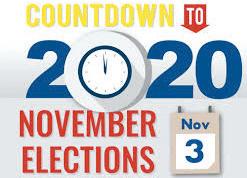
3 minute read
suffragists pursue right to vote
their protest lead to passage of the 19th amendment
In the spirit of patriots of the American Revolution, suffragists pursued their right to the ballot box. Nothing validates citizenship like exercising the right to vote. Historically, this right has been a hard-won privilege for segments of the population. Women activists marched and protested, and risked imprisonment and assault to win the vote.
Advertisement
Virginian women were not to be left behind. In 1909, at the home of Anne Clay Crenshaw of Richmond, women founded the Equal Suffrage League of Virginia (above). They wanted to effect changes in health, education, and child labor laws. Lila Meade Valentine served as its first president. Other noted members were writers Mary Johnston and Ellen Glasgow, artists Adele Clark (right) and Nora Houston, and physician Dr. Kate Waller Barrett , of Stafford County.
Recording Secretary Adele Clark organized rallies, designed postcards, and helped direct legislative initiatives. Suffragists used speaking tours to educate the public and win support.
Seawell In 1912, Clark and Molly Elliott published dueling essays in The Richmond Times Dispatch . Seawell penned an antisuffragist booklet called The Ladies' Battle. Her editorials: Why Women Should Not Vote and Some Problems of Woman's Suffrage predicted consequences, such as divorce, violence against women, high taxes, exposure to socialism, forced support of husbands, and African American suffrage.
Clark contradicted Seawell in a pamphlet titled: Facts vs. Fallacies, AntiSuffrage Allegations Refuted: A Reply to Miss Molly Elliott Seawell.
In 1914 the League founded a monthly newspaper, Virginia Suffrage News. Support from Richmond businessmen led to the establishment of the Men's Equal Suffrage League of Virginia. That same year, the Suffrage

By malanna henderson
League joined the National American Woman Suffrage Association. By 1919, membership had reached 30,000. The League appealed to the General Assembly to amend the state constitution to extend voting rights to women. Three resolutions submitted from 1912 to 1916, were defeated. When Congress passed the Nineteenth Amendment , Virginia was one of nine southern states that refused to ratify it. Virginian women won the right to vote in August 1920, but the General Assembly didn't ratify the Nineteenth Amendment until 1952. Although, the early leaders of the women's movement honed their organizational skills as abolitionists, they excluded their African American sisters from membership. Lila Valentine cautioned Mary Johnston in a letter not to jeopardize their own chances. "I believe that all women, white or black, who meet the qualifications for suffrage in any State should have that right, but … we should exercise common sense, and not complicate our efforts and add difficulties of the task by injecting elements of discord. As you know, the Negro is the one remaining argument against suffrage in the Southern States." The League published a flier in 1916, to clarify its position on Negro suffrage. It argued that "the enfranchisement of Virginia women would increase white supremacy." Voter suppression through literacy tests and poll taxes would prove effective in disenfranchising blacks. African American women organized their own suffragist leagues and clubs across America to fight sexism and racism. Prominent African American suffragists were Augusta Chissell and Margaret Hawkins, Mary Church Terrell, Mary McCloud Bethune, Ida B. Wells, Sojourner Truth , and poet Ellen Watkins
Harper.
Their attempts to join the national front was rebuffed. The 1890 National American Women Suffrage Association refused membership of black women's groups. In response, they formed the National Association of Colored Women in 1896. This led to the founding of the NAACP in 1909.
In the 1913 women's suffrage parade in Washington, D.C., African Americans ignored requests to march in the back of the line.

Ora Perry (top) , was the first president of Virginia Negro Women's
League of Voters. Their motto "Lifting as we climb," included ending Jim Crow laws and lynching, and advocating for social reforms and education. Whereas The Virginia Suffrage League disbanded soon after the passage of the Nineteenth Amendment, black women faced continued challenges. Richmond's black female leaders, Maggie Walker (first woman in the U.S. to establish and serve as a bank president) and Perry organized voter registration drives and educational events. Not until President Lyndon Johnson signed the Voting Rights Act in 1965, which outlawed voter suppression tactics, did America truly become a democracy.
Malanna Henderson is retired from the banking industry. She's the author of a historical fiction book titled: On the Wings of Freedom, available through Amazon.com










